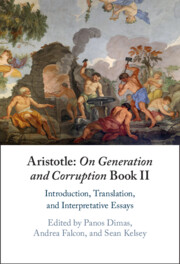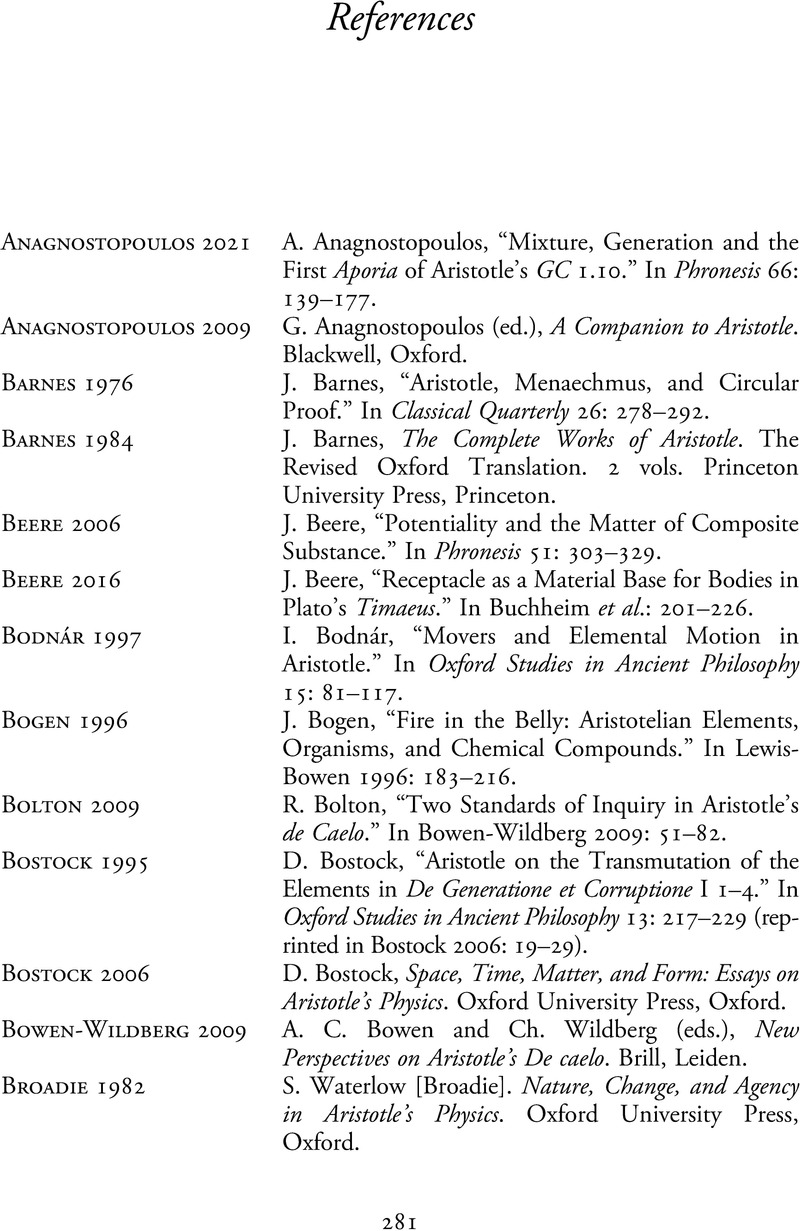 Aristotle: On Generation and Corruption Book II
Aristotle: On Generation and Corruption Book II Book contents
References
Published online by Cambridge University Press: 10 November 2022
Summary

- Type
- Chapter
- Information
- Aristotle: On Generation and Corruption Book IIIntroduction, Translation, and Interpretative Essays, pp. 281 - 288Publisher: Cambridge University PressPrint publication year: 2022
